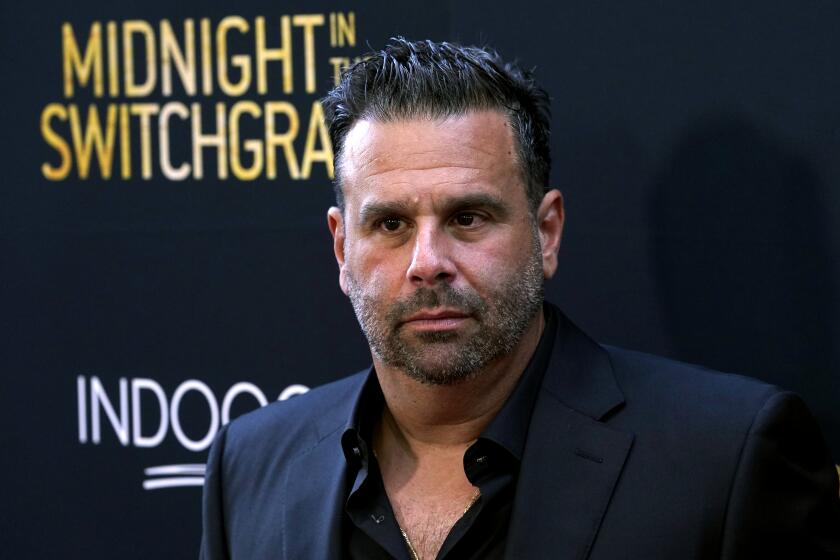2 Studios Acquire Financial Partner
- Share via
Two major Hollywood studios announced Thursday that an investment group is putting up $600 million in film production money they can tap, part of a growing trend in which companies share profits with outsiders in exchange for a financial safety net against box-office flops.
Under the deal with Beverly Hills financial consultant Relativity Media, Sony Pictures Entertainment’s Columbia Pictures will receive $400 million to co- finance 11 films.
Separately, Universal Pictures, part of NBC Universal, will get $200 million to co-finance seven films.
The equity group will put up as much as half of the budget on each film it co-finances, with the studios retaining creative control and distribution rights. Deutsche Bank helped arrange the deal.
With box-office receipts down, DVD growth flattening and the cost of making and marketing movies skyrocketing, studios are increasingly looking for ways to reduce their investment risks.
“We are prepared to give up some of the upside for more certainty on our financial positions,” said Bob Osher, chief operating officer of Columbia Pictures Motion Picture Group. “It’s a way for us to manage the slate in a strategic way.”
Sony is coming off one of its worst years, with expensive flops such as “Stealth,” “Zathura” and “Bewitched.” The studio is betting on this year’s “The Da Vinci Code” and “The Grudge 2” to make a comeback.
Universal had such disappointments as “Cinderella Man,” “Munich,” “The Producers” and “Jarhead,” but saw good business with the low-budget hit “The 40 Year-Old Virgin.” Its “King Kong” is expected to be profitable, although the film has fallen short of blockbuster expectations.
“The last year has been tough for the industry,” said Rick Finkelstein, president and chief operating officer of Universal Pictures.
Universal plans to use the money to co-finance upcoming films such as “The Fast and the Furious: Tokyo Drift,” the dramatic thriller “The Kingdom” and an untitled David O. Russell project.
Sony declined to elaborate on the details of the deal.
Relativity Media, which will get a production credit on some of the films, signed a similar deal with Warner Bros. last year. The company sets up the deal similar to a mutual fund, where investors put money into a diverse pool of movies to spread risk.
“Financing one movie is risky,” said Ryan Kavanaugh, a partner at Relativity. “But financing a lot of movies is not risky. If done right, this industry is not more risky than any other.”
More to Read
The biggest entertainment stories
Get our big stories about Hollywood, film, television, music, arts, culture and more right in your inbox as soon as they publish.
You may occasionally receive promotional content from the Los Angeles Times.










